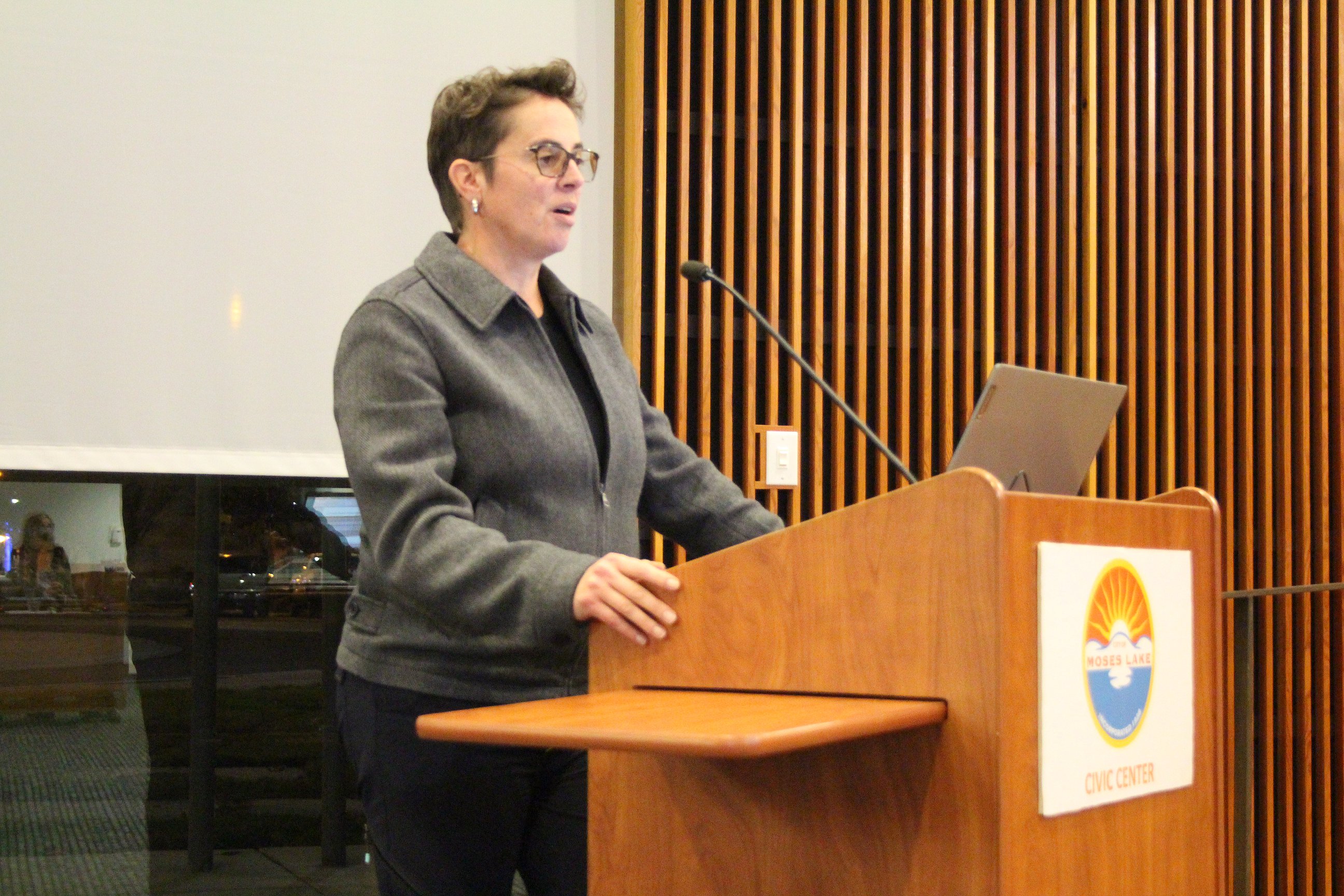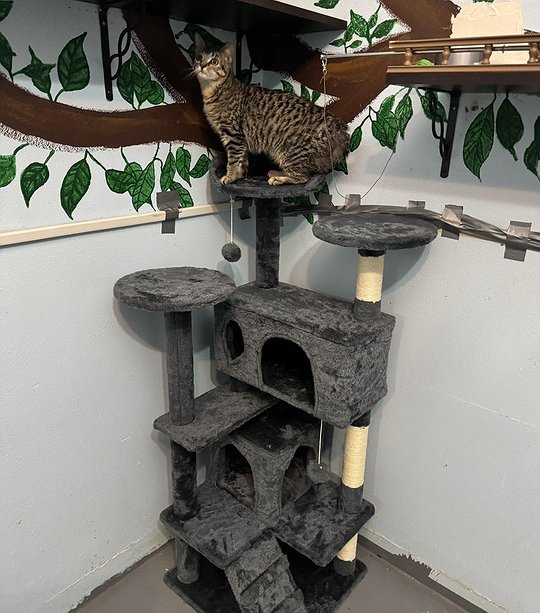Caring for animals, and the cost, discussed at Moses Lake council meeting
MOSES LAKE — A request from Grant County Animal Outreach for additional funding from the city of Moses Lake led to a discussion of animal welfare and its cost at the regular Moses Lake City Council meeting Nov. 26.
Sara Thompson Tweedy, president of GCAO’s board of directors, requested that the city increase its funding to $181,000 in 2025. Mayor Dustin Swartz said that might be difficult.
“We have challenges of our own,” Swartz said.
The shelter receives annual funding from the city of Moses Lake and Grant County, and the shelter’s board made a similar request for more funding to the Grant County Commissioners. Shelter board members have committed to raising $150,000 in donations in 2025, Tweedy said.
Increased demand for GCAO services, Tweedy said. has led to increased expenses.
“We have been consistently at about 100 dogs in our shelter since (the COVID-19 pandemic). There was a huge increase in the number of dogs and cats that we were housing, and we’ve consistently stayed up. We’ve reached a high of 130 dogs at the shelter at one point. In order to serve that many animals, we’ve increased our staff to about 12 individuals,” Tweedy said.
Through October GCAO had revenues of about $318,800 and expenses of about $402,000. Payroll accounted for about $299,600 of expenses, according to information Tweedy presented. She estimated expenses for 2024 would be about $512,000.
Animal outreach must pay staff through the end of the year, she said, and is trying to pay off its outstanding veterinary and food bills before year’s end.
“We have some unpaid bills we have not been able to find funding for, even though we’ve worked very hard to meet those obligations,” Tweedy said.
In addition, the Washington State University School of Veterinary Medicine used to provide considerable spaying, neutering and vaccination services to shelters at no cost, but that service has been cut back, she said. Now GCAO has to pay for some vaccinations, spaying and neutering.
Expenses are expected to remain at current levels or increase, she said, and as a result, GCAO officials need more money.
In answer to a question from council member Deanna Martinez, Tweedy said dogs and cats arrive at the shelter via various routes.
“Some of them are owner surrenders,” Tweedy said. “Many of them are strays. Some of them could be neglected or abused animals that are brought in after they’ve been confiscated. Sometimes they’re just dropped off at the gate.”
While GCAO tries to take as many animals as possible, Tweedy said, there are times when shelter officials have had to refuse. Moses Lake Police Chief Dave Sands said when there’s no place to house animals, the police can’t pick them up.
“I don’t know what mechanism we can come up with to find that funding on a year-after-year basis. You’re proposing an over 100% increase,” Swartz said. “That’s a pretty big whack to take at one time.”
He asked about the feasibility of looking for other ways to fund the animal shelter.
“If we had buy-in from the community, is there a more stable funding source that we can up with as a community?” he asked.
Tweedy said in her experience, a lot of the challenges come from a long period of underfunding and decisions that should’ve been made but weren’t.
“There’s been so much deferred maintenance – and so much deferred attention to the issues plaguing the county,” she said.
She cited the example of pet owners who couldn’t afford to spay or neuter their animals.
“We would love to brainstorm around low-cost spay and neuter to try and reduce the number of animals within our city (and) county. But it’s really hard to turn your attention to that when you’ve got a clogged-up sewer line, and that becomes the immediate need of the day,” she said.
Communities throughout the county have expressed interest in contracting with GCAO, she said, but the shelter is already full and contracts are not feasible.
The GCAO board members are volunteers, she said, and have jobs and families. Ultimately, caring for abandoned animals is going to cost somebody money, she said.
“It costs money to meet the demand that the community, in a way, has placed on us,” she said.
The city of Moses Lake and the Grant County Board of Commissioners have committed $1 million each to building a new shelter, and Martinez asked if that would increase shelter efficiency.
Tweedy said the existing shelter is in poor repair with inadequate electrical and utility systems. Among other things, shelter staff must hand-wash all the dog and cat dishes, she said. The new shelter will have upgrades that will make a lot of those chores easier and more efficient, she said.
“I think a new shelter would go a really long way,” she said.





